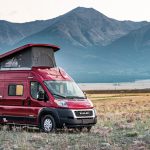The mayors of Twin City Minneapolis and St. Paul detailed Friday their plans for a city-wide bike-sharing program called Freewheelin, part of the ongoing efforts of both cities to support healthy living and environmental sustainability.
The Freewheelin program was developed by Humana Inc. in partnership with bicyle industry leaders. As part of the multi-pronged initiative, Humana and the not-for-profit Bikes Belong will bring nearly 1,000 bikes to the Twin Cities during the Republican National Convention in September. The bikes can be used free of charge by anyone looking for an alternative to automobiles while the convention is in town.
“Saint Paul and Minneapolis are well known for our healthy lifestyle and regard for the environment,” said Saint Paul Mayor Chris Coleman. “Bringing the Freewheelin program to our cities puts us at the national forefront providing a high standard of living and an environmentally friendly, transit-oriented region.”
Minneapolis/St. Paul joins a small group of progressive cities establishing bike sharing programs. Plans for the Freewheelin program call for 1,000 of the bikes to be sent to the city for use during the Republican National Convention. Seventy of those bikes and the checkout kiosks will remain after the convention and be donated to the two cities by Humana, as part of an ongoing program to support carbon emission reduction and healthy active lifestyles. The program will also establish a lasting legacy and a start to a permanent bike sharing system in Minneapolis and St. Paul.
“With an expected 45,000 visitors arriving here in early September, we need to reduce automobile congestion and 1,000 bikes will help us to achieve that goal,” said Minneapolis Mayor R.T. Rybak. “I will take the lead every afternoon during the convention by riding Freewheelin bikes with delegates to the Xcel Center. I am also using this opportunity to inspire local partners to help establish an ongoing bike share network in Minneapolis.”
Freewheelin bike racks will be set up at various points around the cities, each housing a collection of the programs proprietary bikes, which are equipped with trip computers. A solar powered kiosk through which participants can “check-out” a bike to use for things such as riding to work or doing errands, or simply taking a leisurely spin will accompany each bike rack.
Once users are finished, they simply return the bike to any Freewheelin rack in the city. Participants can register for the program on the Freewheelin website, and use the site to automatically track things like their mileage, their personal carbon offset and other health information. Riders simply use a credit card or a Freewheelin key fob to check the bike out at no charge during the convention.
“Mayor Rybak and Mayor Coleman and their staffs have helped us with all facets of this program. The Twin Cities are perfect for Freewheelin as a majority of the Twin City residents are already avid cyclists and they are open to embracing new ways of helping improve the health of residents and the health of the environment,” said Lisa F. Tourville, vice president, Humana. “A healthy body and a healthy environment work in tandem and initiatives like Freewheelin can help to improve both.”
Humana piloted the Freewheelin program in Louisville, Ky., in 2008 by installing Freewheelin bikes and racks for use by employees free of charge. More than 2,500 employees registered for the program. Based upon the success of the pilot, Humana is expanding the program to other cities, as well as college and corporate campuses across the country. Bike sharing is a popular alternative used in various European cities including Paris and Amsterdam to encourage “green” and congestion-free transportation.
“This is an exceptional opportunity to show how well bicycling works for short trips in big cities,” said Tim Blumenthal, Executive Director of Bikes Belong. “Considering that 41 percent of all trips in automobiles are two miles or less, bikes are an ideal alternative.”














